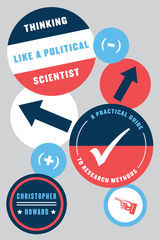
During the past decade, Democrats and Republicans each have received about fifty percent of the votes and controlled about half of the government, but this has not resulted in policy deadlock. Despite highly partisan political posturing, the policy regime has been largely moderate. Incremental, yet substantial, policy innovations such as welfare reform; deficit reduction; the North American Free Trade Agreement; and the deregulation of telecommunications, banking, and agriculture have been accompanied by such continuities as Social Security and Medicare, the maintenance of earlier immigration reforms, and the persistence of many rights-based policies, including federal affirmative action.
In Seeking the Center, twenty-one contributors analyze policy outcomes in light of the frequent alternation in power among evenly divided parties. They show how the triumph of policy moderation and the defeat of more ambitious efforts, such as health care reform, can be explained by mutually supporting economic, intellectual, and political forces. Demonstrating that the determinants of public policy become clear by probing specific issues, rather than in abstract theorizing, they restore the politics of policymaking to the forefront of the political science agenda.
A successor to Martin A. Levin and Marc K. Landy’s influential The New Politics of Public Policy (Johns Hopkins University Press, 1995), this book will be vital reading for advanced undergraduate and graduate students in political science and public policy, as well as a resource for scholars in both fields.

With wit and practical wisdom, Christopher Howard draws on more than a decade of experience teaching research methods to transform a typically dreary subject and teach budding political scientists the critical skills they need to read published research more effectively and produce better research of their own. The first part of the book is devoted to asking three fundamental questions in political science: What happened? Why? Who cares? In the second section, Howard demonstrates how to answer these questions by choosing an appropriate research design, selecting cases, and working with numbers and written documents as evidence. Drawing on examples from American and comparative politics, international relations, and public policy, Thinking Like a Political Scientist highlights the most common challenges that political scientists routinely face, and each chapter concludes with exercises so that students can practice dealing with those challenges.
READERS
Browse our collection.
PUBLISHERS
See BiblioVault's publisher services.
STUDENT SERVICES
Files for college accessibility offices.
UChicago Accessibility Resources
home | accessibility | search | about | contact us
BiblioVault ® 2001 - 2024
The University of Chicago Press









